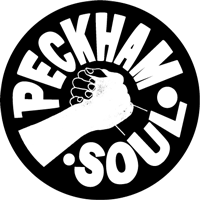1965-1980
Partly formed out of the Art Department of London's Island Records HQ in 1978, Basement 5 were an innovative and highly original black post punk group who created a kind of politically charged, futurist dub. Their lyrics were an attempt to reflect the situation of young people in Britain in the era of Thatcherism, high unemployment, strikes, racism and working class poverty. The seething resentment, dub noise and sheet metal riffage was welded into a mighty sound by Martin Hannett that stands the test of time. In an unparalleled age of crate digging and reissue programs, Basement 5 is one of the few remaining great untold stories of its time.
“You have to play it very loud to enjoy it fully. It was the most difficult production, I must say, the heaviest. It was eighteen degrees in the shade, the end of August. As I recall it has been the most physical album that I’ve ever done. Made me feel like I’d been carrying bricks around. Heavy work. Putting the bass lines in the right place. But it was good.” - Martin Hannett, 1981
Partly formed out of the Art Department of London's Island Records HQ in 1978, Basement 5 were an innovative and highly original black post punk group who created a kind of politically charged, futurist dub. Their lyrics were an attempt to reflect the situation of young people in Britain in the era of Thatcherism, high unemployment, strikes, racism and working class poverty. The seething resentment, dub noise and sheet metal riffage was welded into a mighty sound by Martin Hannett that stands the test of time. In an unparalleled age of crate digging and reissue programs, Basement 5 is one of the few remaining great untold stories of its time.
“You have to play it very loud to enjoy it fully. It was the most difficult production, I must say, the heaviest. It was eighteen degrees in the shade, the end of August. As I recall it has been the most physical album that I’ve ever done. Made me feel like I’d been carrying bricks around. Heavy work. Putting the bass lines in the right place. But it was good.” - Martin Hannett, 1981










